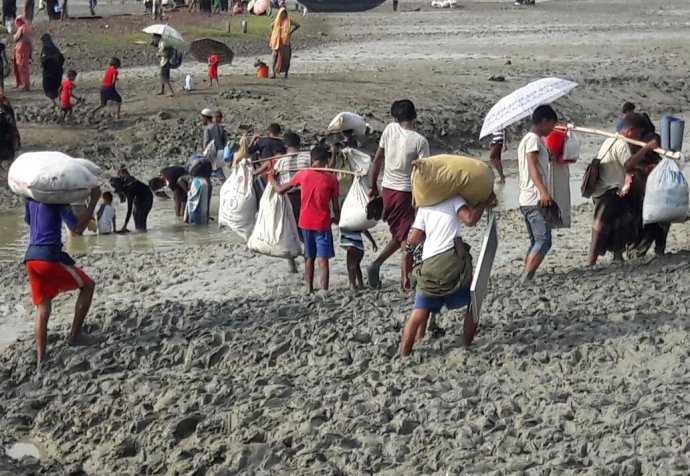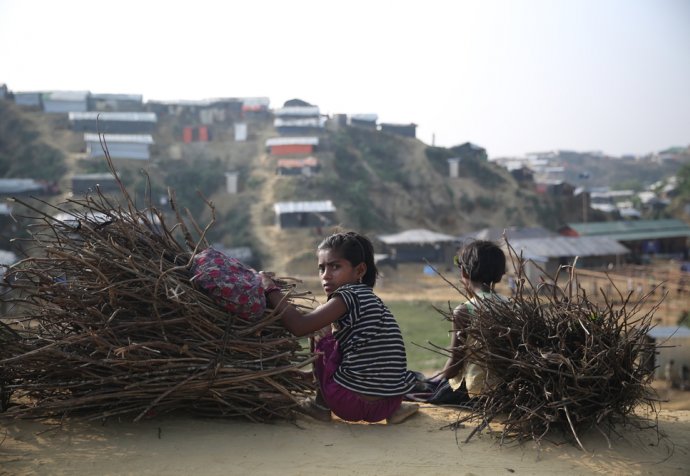Leaders must challenge Aung San Suu Kyi, the state counselor of Myanmar, on her government’s commitment to a realistic repatriation of Rohingya refugees that is voluntary and guarantees their safety and freedom of movement. With Rohingya refugees continuing to cross over into Bangladesh every week, it’s time to face reality and start work on feasible, long-term solutions that will ensure the protection and recognition of the Rohingya people.
ASEAN can’t hide behind development to solve the Rohingya crisis
Ahead of the recent ASEAN-Australia Special Summit, MSF Australia called on regional leaders to stop Myanmar from getting away with – or being rewarded for – mass killing, brutal violence, rape, and displacement of hundreds of thousands of Rohingya.
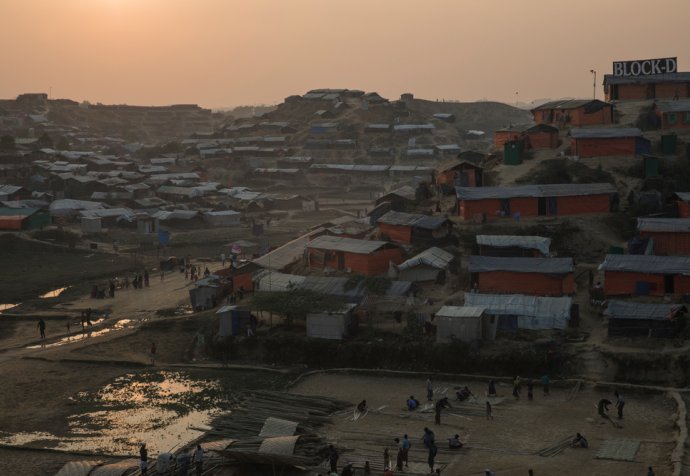
View of Jamtoli makeshift settlement. © Anna Surinyach / MSF
MSF has scaled up its activities in Cox’s Bazar by tenfold since the latest Rohingya influx began in August 2017. Our staff have held more than 300,000 consultations at our clinics. We continue to see newly arrived Rohingya reporting violence, intimidation and restriction of movement and livelihoods in Myanmar. We hear stories of villages being bulldozed and land redistributed in Rakhine State.
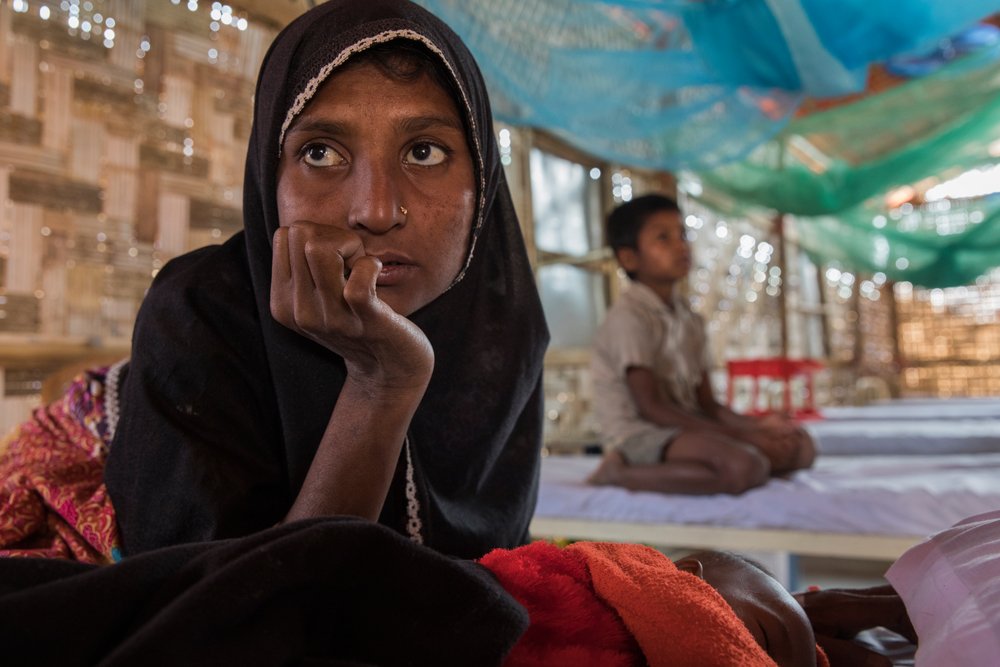
A young Rohingya woman was found by MSF teams in her tent in a makeshift settlement, living in a state of shock. When violence broke out in her hometown in Myanmar’s Rakhine state, she lost her husband and was forced to flee despite her very advanced pregnancy. It was October 2017. She walked for days through the forest with her seven-year-old son. Then, while aboard a boat heading towards Bangladesh, she went into labour, giving birth to a girl. She has not been able to breastfeed her during these past months, and the child is malnourished. © Anna Surinyach / MSF
This reality is a stark reminder of how untenable repatriation is unless there is a real commitment on the Myanmar side. One refugee told our team, “We don’t want to go back unless our demands are met. Firstly, we want recognition as Rohingya; secondly, compensation for all lost properties must be ensured. We know that people are still coming to Bangladesh. The Myanmar military is still killing people. How can we console our minds when we have seen an infant thrown into the fire?”
International development actors are pouring money into projects aimed at supporting people in Rakhine State, yet very few Rohingya remain. Development aid is not addressing the real problem – that the Government of Myanmar refuses any protection or recognition for the Rohingya people that would allow them to safely return. While we agree that development in Rakhine State needs to be supported in the long-term, more focus on addressing immediate and urgent humanitarian needs is required now. Meanwhile, independent international humanitarian organisations, like MSF, are still blocked from meaningful access or operations in northern Rakhine.
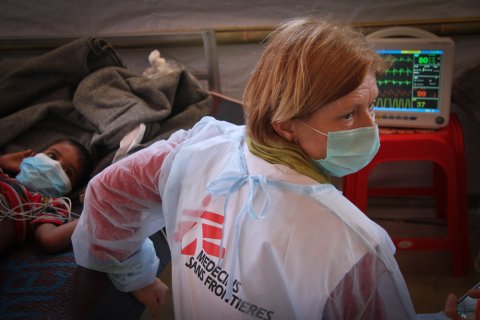
A doctor provides care for patients with diphtheria at MSF’s clinic near Cox's Bazar, Bangladesh. © Sara Creta / MSF
Yes, the Government of Myanmar has created ‘transit centres’ to supposedly facilitate the returns process. But in reality, these are internment camps, surrounded by barbed wire, and not linked to any long-term solution. Just as we’ve seen in Central Rakhine, people will likely end up wallowing for years in these camps. In response to international pressure to provide citizenship for the Rohingya, the government have offered the National Verification Card - a system the Rohingya have rejected as it actually restricts their rights and does not offer a clear path to citizenship. These responses are about appeasing donors and discouraging the Rohingya from returning. The real risk is that the international community buys into this farce and in the end, blames the Rohingya for not wanting to return.
If the Australian government and ASEAN leaders want to know if this is a genuine repatriation process they should be using this opportunity to question Aung San Suu Kyi: Will the Rohingya be given freedom of movement? Will they be able to fish, farm and trade? Will they be able to return to their own land and if not, where will they go? Will they be able to access government schools and hospitals? Or indeed, will Rohingya who return end up indefinitely in internment camps with little access to livelihoods and humanitarian assistance?
There is no time to waste. As the monsoon season approaches in Bangladesh, the situation is increasingly precarious. The Rohingya are still living in makeshift shelters in densely populated camps, with poor hygiene conditions and little access to safe drinking water. What our teams see on a daily basis remains an acute emergency situation with huge humanitarian needs.
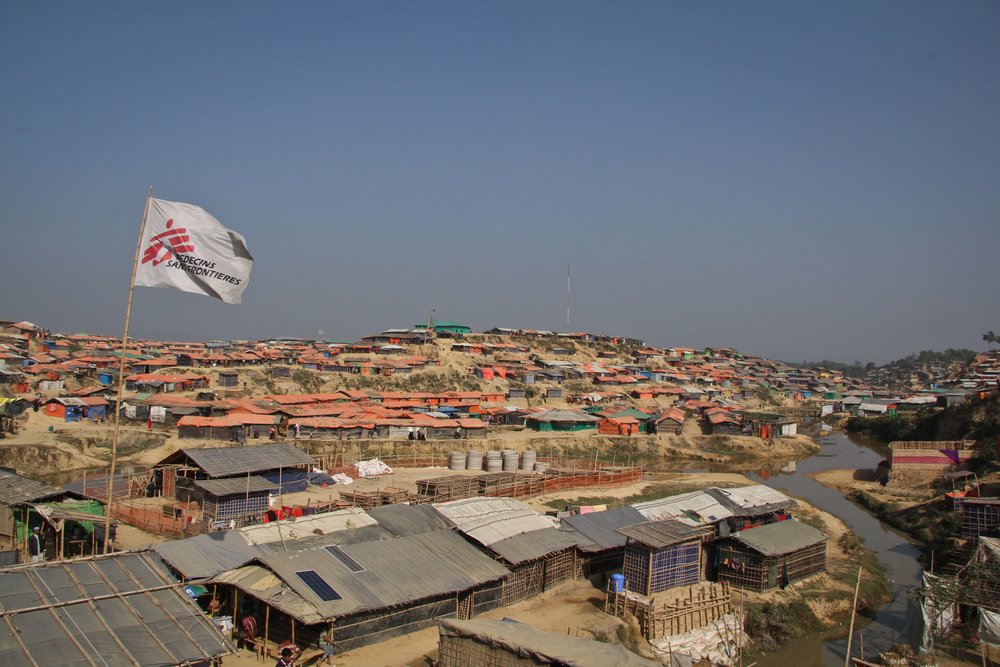
More than 668,000 Rohingya refugees have arrived in Cox's Bazar district in south-eastern Bangladesh since late August 2017 after fleeing targeted violence in Rakhine state, Myanmar. MSF has scaled up its operations in the region in recent months. © Sara Creta / MSF
Thousands of people are in serious danger now and more so within a few weeks or months; not as a result of the violence they fled, but from vaccine preventable and water-borne disease outbreaks exacerbated by the rainy season. Although the government of Bangladesh opened its border and is doing its best to implement mass vaccination campaigns for cholera, measles and now diphtheria, the risk of further outbreaks will remain unless living conditions are improved.
This crisis has been decades in the making. And it’s far from over. Much more needs to be done now to support the Rohingyas in Bangladesh but we also have to face the facts: thousands of people have been murdered and almost an entire population has been displaced and now lives on the brink. With ASEAN leaders including Aung San Suu Kyi at the summit, now is the time to look beyond development responses and come up with durable, realistic solutions that offer safety, protection and recognition of the Rohingya, as well as meaningful access to independent NGOs in Rakhine. The key to resolving this crisis rests with Myanmar.


